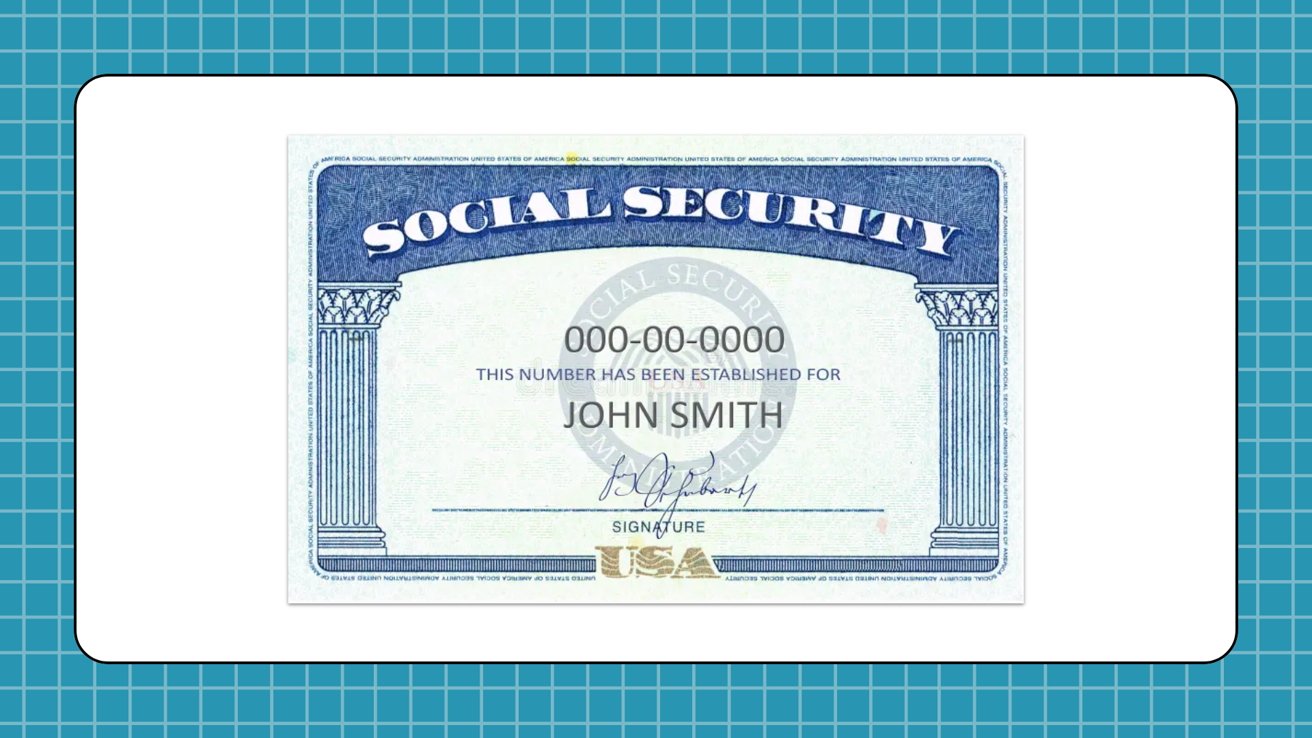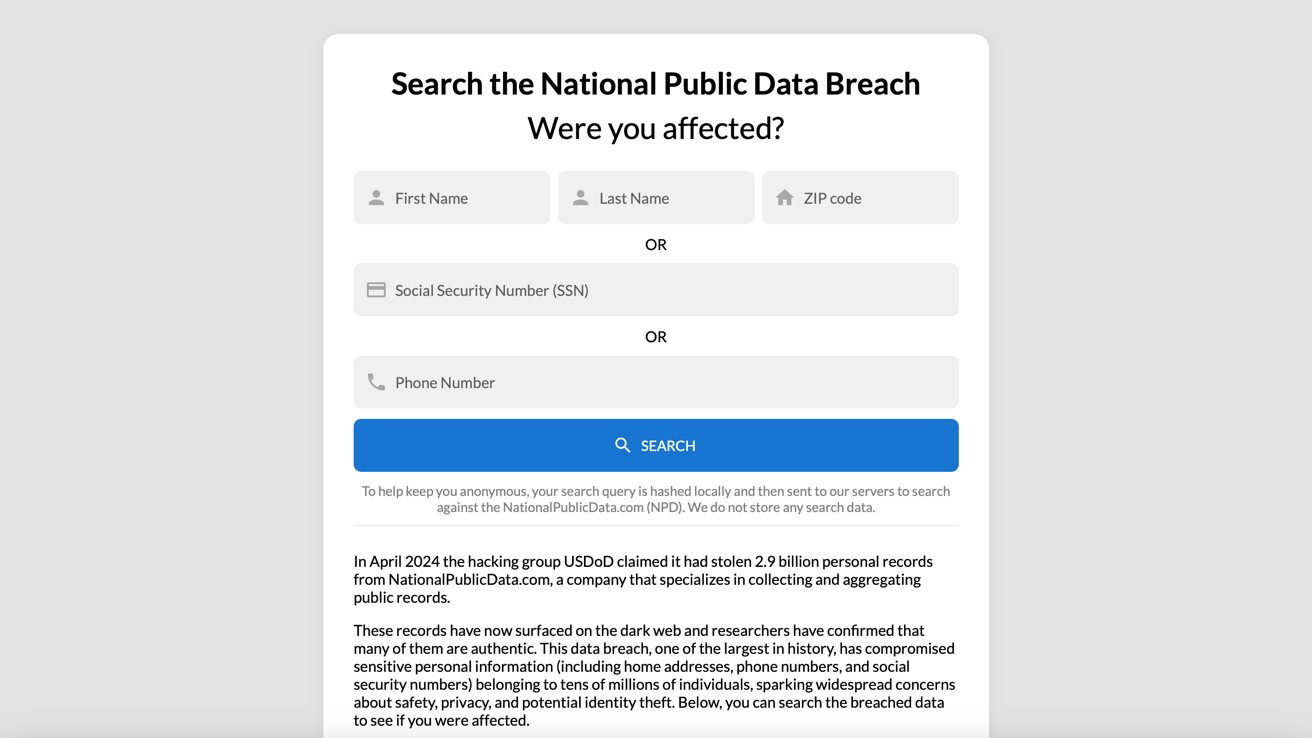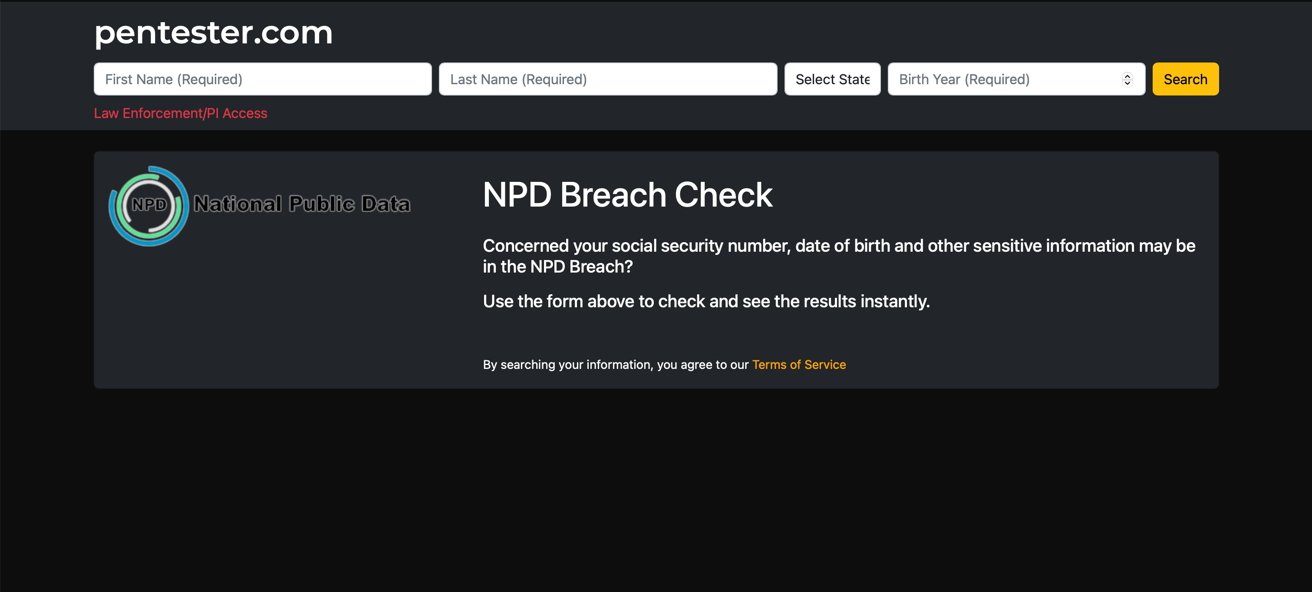How to check if your social security number has been stolen in a giant data theft
A massive lapse of security at National Public Data has resulted in the theft of a wide array of personal data -- including social security numbers -- for almost every American. You can't rewind time to prevent the theft, but there are ways to check if you've been exposed.

National Public Data breach affected millions of people
National Public Data, a company specializing in background checks, confirmed a significant data breach. Hackers infiltrated their database, stealing personal information like names, addresses, and SSNs. The 277GB database is now available for download on a notorious cybercriminal forum, making it a goldmine for identity thieves.
The breach is massive, with 272 million unique social security numbers and 600 million phone numbers. It's twice as large as the infamous Equifax breach in 2017.
How to check if you were affected
Two cybersecurity firms have stepped up to help people determine whether their personal information was exposed in the breach.
Atlas Privacy Data Corporation has created a website, npdbreach.com, which allows users to check if their SSN, phone number, or name and ZIP code are included in the breached database. The site doesn't store user searches, ensuring privacy while investigating.

NPDbreach.com
The company says 20% of breach records are legitimate but warns that not all information is accurate.
Another cybersecurity company, Pentester, has also launched a site at npd.pentester.com. The platform provides a more detailed view by revealing a user's redacted SSN, date of birth, complete address, and phone number.
While this can help users confirm whether the information is theirs, it also risks exposing partial data that others could exploit. Pentester notes that they've limited the data shown on the site to balance between providing useful information and protecting user privacy.

Pentester
Despite the breach's magnitude, National Public Data only acknowledged 1.3 million users affected, which seems low given the leaked data.
To protect yourself, place a free credit freeze and fraud alert with the major credit bureaus -- Equifax, Experian, and TransUnion. A freeze can prevent unauthorized people from opening new accounts in your name.
Read on AppleInsider

Comments
Whereas in the Netherlands (as example) you log in through a secure system where other validated organizations can connect to (DigiD) and simply get a “SSN correct” or “SSN no match” result.
Agreed, but there’s an easier way to find out if you SSN has been stolen.
if you answered ‘yes,’ then it’s been stolen.
But if you hack the SSN directly, then everyone is screwed. I took a look and my Info is out there also. I have my Credit Frozen from all 3 services so I should be good. My old Password is out there for a few places. But I've been changing out passwords for a while to make them all LONG and computer generated for each site. So that is not really a factor anymore either.
So I think I'm OK. I think criminals would go after easier targets!!! You're never 100% safe. I do try to use 2-factor at most places also.